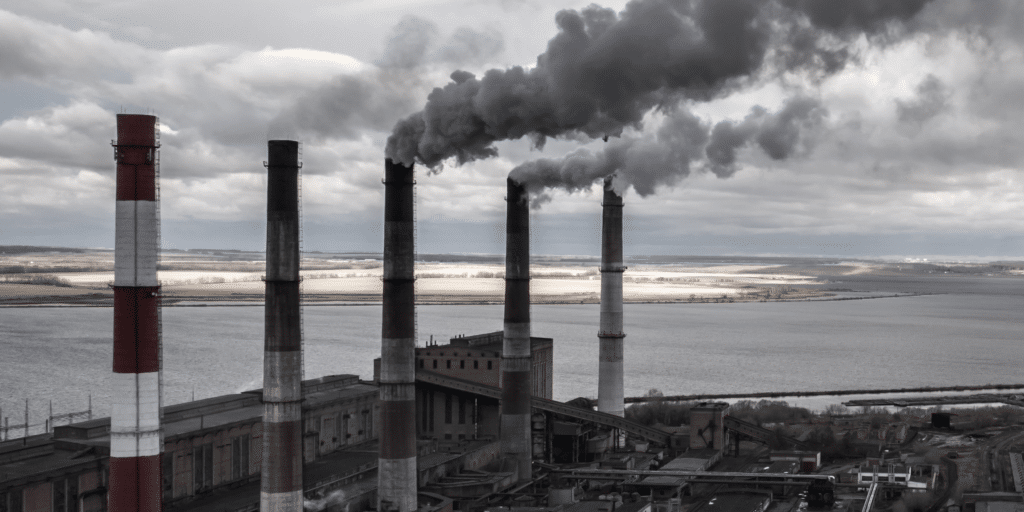
Stock Photo
MANILA – At least four leading domestic banks have reaffirmed their stance against financing new coal plants in the country.
BDO Unibank, Bank of the Philippine Islands, Security Bank, and the Development Bank of the Philippines have reiterated their coal exclusion policies, which prevent funding for new coal projects. This aligns with the Withdraw from Coal: End Fossil Fuels (WFC:EFF) initiative, a coalition of environmentalists, faith leaders, and various sectoral groups.
BDO Unibank Vice President and Chief Sustainability Officer (CSO) Marla Alvarez in an email last week said the bank has ceased lending in additional coal capacity since 2022, and has committed that its coal exposure will not exceed 2% by 2033.
BPI, the first domestic private bank to publicly announce its commitment to stop financing greenfield coal projects and to zero coal exposure by 2032, also reiterated its policy: “We at BPI remain steadfast in our commitment not to finance any new greenfield coal power generation projects, and a new expansion unit, even if to an existing plant, is covered under BPI’s existing coal policy,” said Eric Luchangco, BPI’s chief finance officer and CSO.
Security Bank also stated that it will not be participating in the expansion project in line with their 2022 commitment to no longer finance new coal generation projects, and to wind down existing exposures by 2033.
Meanwhile, state-owned development bank DBP also reaffirmed its 2017 policy of putting coal power facilities on its negative list.
“As to date, DBP’s existing policy putting coal power on a negative list remains in full force and effect,” said DBP Vice President Rustico Noli Cruz.
Landbank of the Philippines in 2023, included power plants with greenfield status and those that will be newly constructed in its negative/exclusion list.
This year, however, the bank clarified that its coal financing policy will follow the Department of Energy’s coal moratorium.
Groups and communities have previously protested AboitizPower’s expansion plan of the Toledo Power Plant due to the coal plant’s adverse effect on residents and the environment.
Graft charges have also been filed against Energy Secretary Raphael Lotilla due to his endorsement of TVI’s Unit 3 despite the expansion contravening the 2020 coal moratorium.
Gerry Arances, co-convenor of WFC:EFF, also urged Philippine banks to shift support from coal and gas to renewable energy, amid the world’s commitment to transition away from fossil fuels.
Southeast Asian (SEA) banks, including BPI, are leading the rally for renewable energy funding, data by the Center for Energy, Ecology and Development (CEED) shows. In a new report, CEED found that while fossil fuel expansion remains in the region, primarily pushed by the Global North, SEA has a massive 397.8 gigawatts of renewables capacity in the pipeline.
READ MORE
Coal still dominates as renewables grow in PH’s power mix
DBP launches new program for renewable energy projects
That top banks are backing out of the expansion project is a signal for the whole banking and financing community to also do the same, according to Bishop Gerardo Alminaza of San Carlos Diocese.
“With the disappointing outcome of the COP29, which did not double down on phasing out fossil fuels and only offered measly financing for developing countries, there is an increasing imperative for the fossil fuel industry and financing institutions to pivot from coal and gas, and re-channel resources to RE. This transition is especially important for the climate-vulnerable Philippines, which is experiencing one climate disaster after another,” said the bishop, lead convenor of the EcoConvergence National Hub.
Along with Bishop Alminaza , several environmental groups have launched the “Save Tañon Strait” campaign in September to protect the largest marine protected area in the country from the impacts an additional unit of TVI coal facility will make.
READ: Coal-fired generators still Philippines’ top source of electricity
Disclaimer: The comments uploaded on this site do not necessarily represent or reflect the views of management and owner of Cebudailynews. We reserve the right to exclude comments that we deem to be inconsistent with our editorial standards.
